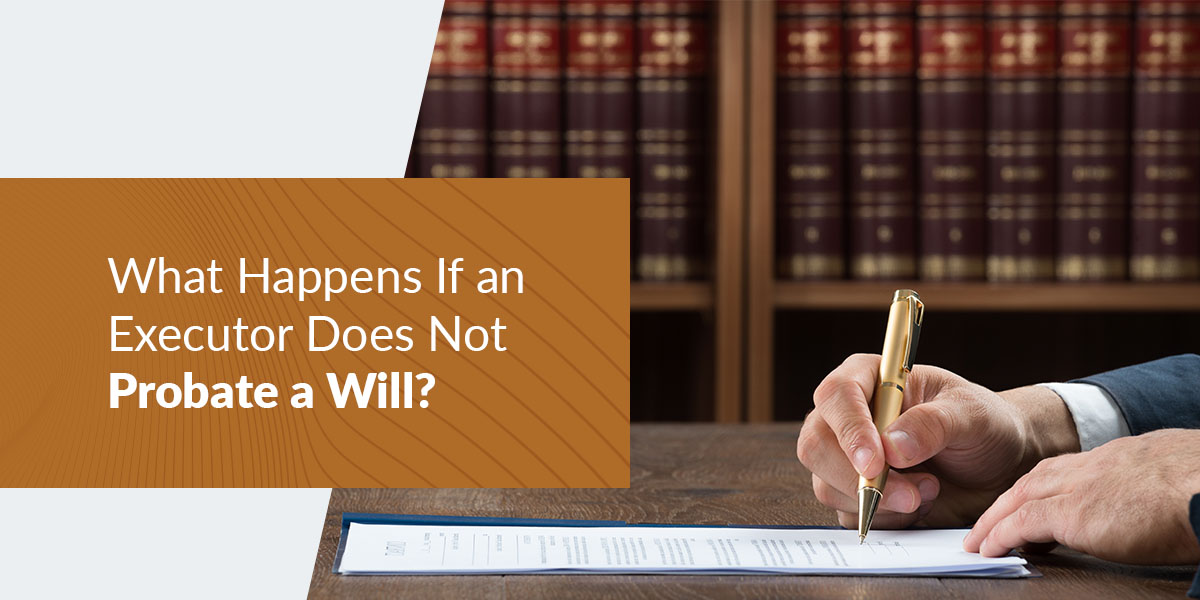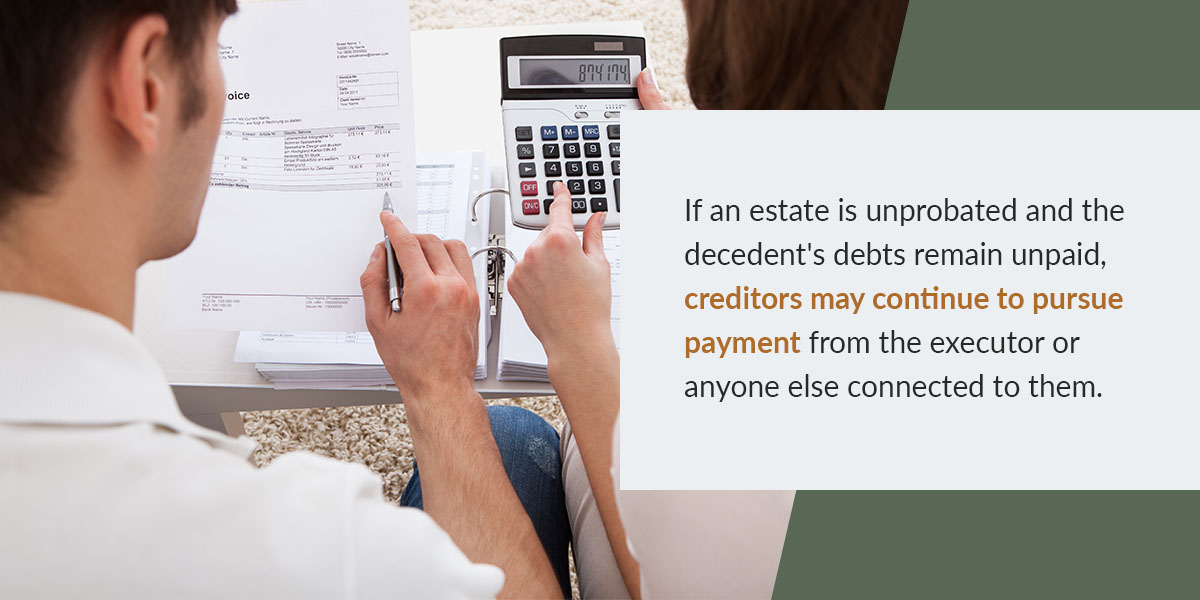
If you recently lost a loved one and are heir to their inheritance, you’re probably wondering what happens next. As an heir, you must go through a process called probate and cannot collect your inheritance money until after the probate court settles the estate. Though this process may sound straightforward enough, the truth is, probate is typically tedious, time-consuming and subject to delays. That means you may not see your inheritance money for up to two years after probate begins.
If you’re surprised to learn the truth about probate, you’re not alone. Most heirs are frustrated and disheartened to discover how long they must wait to receive their share of the estate, and many wonder if probate is strictly necessary. Unfortunately, probate is an essential legal process, and can result in severe repercussions if neglected. So, what happens if no probate is filed?
What Happens If an Estate Is Not Probated?
The estate’s executor is responsible for filing a person’s will and opening a probate case after they die. This person has a fiduciary duty to the estate’s beneficiaries, or an obligation to act in their best interests. If a will is not probated because the executor neglects to perform their duties, the estate and its heirs can endure considerable losses.
What happens if a will is not filed? Many consequences of not probating a will may occur if your executor avoids the process.
Legal Assets Will Not Transfer
If the executor fails to probate a will, all the decedent’s assets remain in their name indefinitely. That means the deceased individual’s assets, such as their house, car or personal property, cannot transfer over to the appropriate parties without court approval. Without the probate process, heirs will not have access to the decedent’s signature or consent, and they cannot lawfully collect their inheritances.
The Estate Will Incur Ongoing Expenses
Another repercussion if the executor does not probate the will is that it becomes legally impossible to pay any of the decedent’s bills and debts. As a result, the estate will likely suffer ongoing expenses, such as property taxes, car registrations and insurance premiums. These bills will continue to go unpaid unless someone chooses to fund them personally.
If the will goes through probate as intended, money from the estate would likely cover these expenses.
Creditors May Continue to Pursue Payment
If an estate is unprobated and the decedent’s debts remain unpaid, creditors may continue to pursue payment from the executor or the deceased person’s spouse, parents, guardian, administrator or anyone else connected to them. They may even be able to track down the decedent’s property and sue if someone else has illegally acquired it.

It Becomes Impossible to Address Will Validity
If the decedent left behind a will, but there are questions regarding its validity, you can’t legally address these issues without going through probate. For instance, if there’s any question about whether the decedent had the mental capacity to create the will or the signatures are valid, it is impossible to contest or revoke the will.
In some states, if you fail to probate a will within the established period, the estate will be as if the decedent died intestate, or without a legal will.
The Executor May Be Personally Liable
If the executor knew they were supposed to probate the will but failed to do so, they may be personally accountable for all expenses the estate incurs, plus any financial impacts to the intended heirs. When heirs do not receive the inheritance they are legally due because of an executor’s neglect to file probate documents, they can even sue.
Even worse, an executor who withholds a person’s will from probate court intending to benefit financially is committing a criminal offense, and may experience jail time.
For example, let’s say your mother specified in her will that she wanted her assets to go to her sister. If you, as her child, knew this and intentionally withheld the will, the court would have no way of knowing who the intended beneficiary was and would likely leave the inheritance to you as the decedent’s next of kin. In this instance, you would financially gain against the decedent’s wishes and could be subject to criminal prosecution.
What to Do If Your Executor Does Not Probate the Will
If you suspect your executor isn’t handling their fiduciary duties properly, or if you are dealing with a situation where the executor of the will declines their responsibilities, you must take action immediately to avoid losses for the estate and your fellow heirs. Your probate attorney can take legal action to remove the executor from their position and even sue them for financial damages.
There are various methods of removing or suing an executor who is avoiding their responsibilities, including:
- Petitioning the probate court to push the executor to perform their duties.
- Petitioning to request that the probate court remove the executor, including the reasons why.
- Filing a civil lawsuit based on misconduct or breach of duty to recover the estate’s financial losses.
- Filing criminal charges, such as fraud, embezzlement or stealing from the estate, based on which is applicable.
Is There a Way to Avoid Probate?
If you’re looking for a way to skip the probate process and collect your inheritance fast, you can do so through a probate advance. Probate advances allow heirs to access a portion of their inheritance money immediately instead of waiting for the estate to settle through probate.
Unlike a loan, a cash advance does not require you to provide collateral, make monthly payments or pay interest. In addition, probate advances are non-recourse and have no risk of non-payment, meaning you’re not personally liable if there isn’t enough money in the estate to pay the probate funding provider after probate ends.
At Inheritance Funding, we’re here to get you your inheritance money immediately through our seamless, painless cash advance process. First, we’ll ask you for some essential information about your inheritance and how much money you want to collect from it. Then, we’ll give you some simple paperwork to complete and wire your cash right away. Once you receive your share, your responsibility is over!
Collect Your Inheritance Money Immediately at Inheritance Funding Today
If you’re looking to avoid the tediousness of probate and get cash fast, the experts at Inheritance Funding can help. Our priority is getting heirs the money they deserve without risks or loopholes. That’s why we never require credit or employment checks or impact your credit score. When you do business with us, we also treat you to our low price guarantee, where we’ll beat out any confirmed offers you may receive.
Contact us to learn more about our probate advances today!






